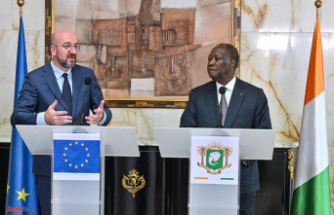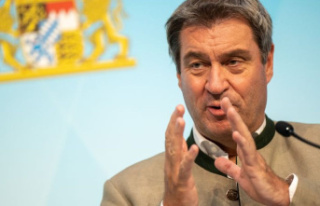Good advertising looks different: just last weekend, thousands of train drivers in North Rhine-Westphalia stopped at the tracks again. The train had to temporarily stop entire S-Bahn connections in the Cologne region – due to a lack of staff.
Among those affected were numerous owners of the 9-euro ticket. From the point of view of the Pro Bahn passenger association, this is a fatal signal: "New customers who were attracted by the 9-euro ticket are deterred in the long term, and long-standing Deutsche Bahn customers are also being driven away."
Probably never before have the weaknesses of local public transport (ÖPNV) in Germany been exposed so clearly as with the special discount on bus and train travel.
The transport network groans under the sudden onslaught, after all, investments in expansion have been neglected for decades. Rural regions have been left behind, and routes there have been gradually shut down. Whether this will improve in the future seems uncertain. The federal and state governments are struggling to find adequate funding.
The fact is, however, that the bargain price has brought millions of Germans onto buses and trains. In the first month of sales alone, June, 21 million citizens booked the special ticket, plus around ten million existing customers whose subscription was cheaper.
The federal government had provided the states with billions to compensate for the significant loss of revenue. Between 2010 and 2019, public transport was able to attract new guests every year, as industry figures show. In the last year before the corona pandemic, the transport companies counted more than 10.4 billion passengers - around eight percent more than at the beginning of the 2010s. Only Corona put a damper on the trend. The number of passengers fell by more than a quarter in the first year of the pandemic.
There is one thing the 9-euro ticket certainly didn't do: greater satisfaction with public transport. After all, local trains and buses are currently fuller and less punctual than ever before. Even before its introduction, passengers were annoyed by canceled trains, slow buses and overcrowded subways.
Almost 40 percent of citizens were “rather dissatisfied” or even “very dissatisfied” with the transport options in their place of residence last year, according to a survey by the opinion research institute YouGov.
So it is hardly surprising that so far only a minority commutes to work or school by public transport. Just a quarter uses buses and trains for this purpose, and almost as many commute by bicycle. The car is still in first place. Almost two thirds use it to get to the office.
How to proceed after the expiry of the 9-euro ticket was debated until the very end. Some transport associations have announced that they want to return to their old prices for the time being.
Then again, it depends on where you live how deep people have to dig into their pockets for everyday journeys. The differences in the largest German cities have been huge in recent years: while Munich residents had to pay 57 euros for their monthly pass (zone M), in Hamburg it was almost twice as much at 112.80 euros. In the end, ticket small-stateism threatens again.
"Everything on shares" is the daily stock exchange shot from the WELT business editorial team. Every morning from 7 a.m. with our financial journalists. For stock market experts and beginners. Subscribe to the podcast on Spotify, Apple Podcast, Amazon Music and Deezer. Or directly via RSS feed.












